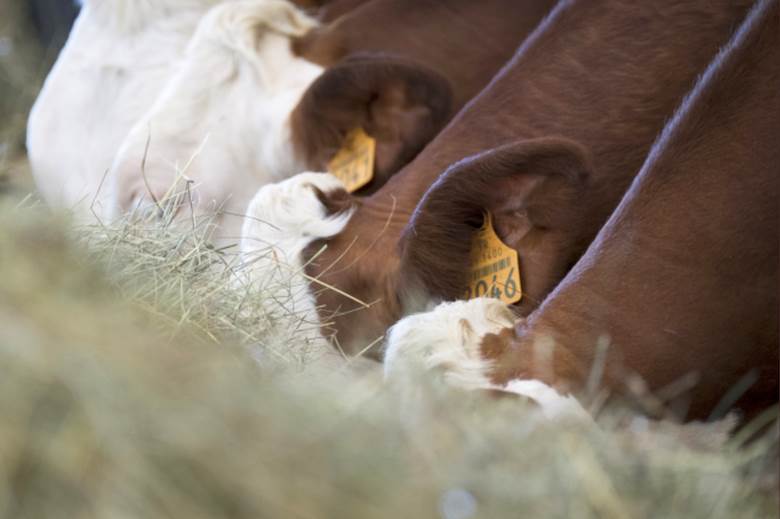Feed additive will reduce cattle methane emissions by 30%
24/07/2019

DSM said on making the announcement that the new feed additive is scientifically proven to cut methane emissions from cows by around 30%, with its efficacy confirmed in 26 peer-reviewed studies globally.
Methane is a natural by-product of digestion in cows and other ruminants, the majority of which is released into the atmosphere as part of the animals’ digestive process. Like carbon dioxide, methane is a greenhouse gas that contributes to climate change. Methane is around 28 times more potent, initially, than carbon dioxde, but is much shorter-lived, staying in the atmosphere and contributing to global warming for ten years before it breaks down. Carbon dioxide stays in the atmosphere and continues to contribute to global warming for centuries.
Dutch-based DSM has said that reducing methane emissions from cattle could help lower the rate of global warming in the near term, helping society stay within the 1.5 or two degrees Celsius maximum temperature rise indicated in the Paris Climate Agreement, while society moves to net-zero carbon emissions.
Reacting to the news, animal science and air quality expert Professor Frank Mitloehner said a 30% reduction in methane emissions from cattle would have a cooling effect. He has explained that if cattle herd sizes remain constant, their methane emissions will not add to global warming because the methane they emit over a ten-year period will be equivalent to the methane that breaks down over that time. Reduce the methane cows will emit in the course of ten years and the amount that breaks down will be greater, decreasing the global warming effect of each herd with the new additive in its diet.
According to DSM, a quarter teaspoon of the feed additive per cow per day suppresses the enzyme that triggers methane production in a cow’s stomach.
“We’re excited to start registration in Europe,” said Mark van Nieuwland, programme director at DSM. “This is an important milestone. Our science-based solution has the potential to be a real game-changer in the global effort to reduce the climate impact of the foods we know and love.”
The company has said it expects to be able to launch the product in the European Union in late 2020 or early 2021 and that registrations in other parts of the world will follow.
Image: French ministry for agriculture and food.











